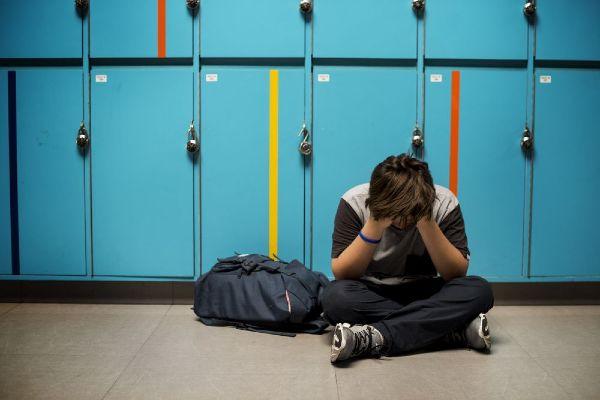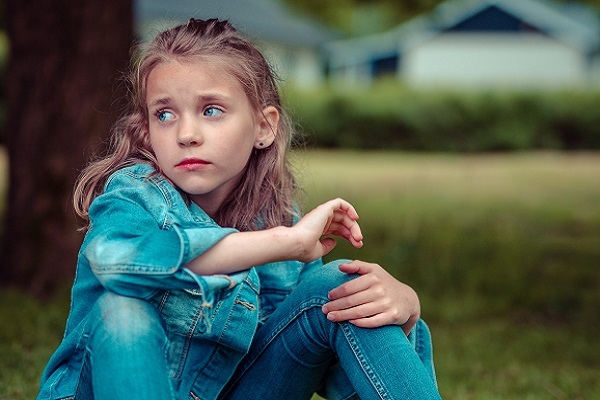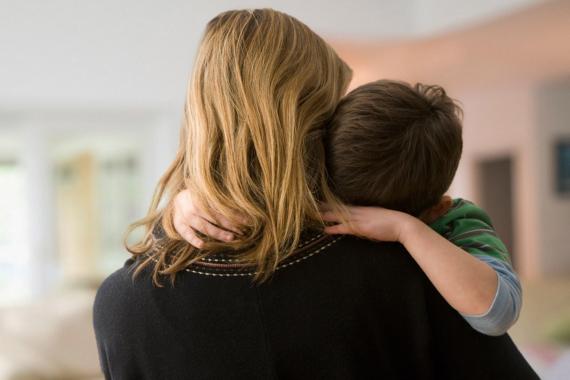The word 'bullying' is thrown around a lot. In recent years schools are helping educate our kids, and have really encouraged kids and teens to identify bullying, and to speak up and tell an adult. The work that I do coaching kids and teens, is more about giving kids the coping skills to deal with bullies and mean words. It’s about dealing with it in your own head. I always start by explaining to kids that there will always be times in life, when you have to deal with mean words, it doesn’t matter if you are six or 60-years-old, whatever age you are there are people that will upset you, if you let them.
I also try to help them to understand that we may never know the reasons why someone bullies; everyone has their own stuff going on, and we don’t need to understand it. They may be dealing with a bully in their own life, or some other bad experience, and its a way for that person to feel better – to make others feel worse. (It’s no excuse though.) But most importantly we don’t have to pay attention and allow the mean words into our head to run around and continue to upset us.

Find out more
The problem is, sometimes the bullies use words that cut close to the bone, and its not easy to ignore it. If a child is slightly overweight and is called fat, it’s much harder to dismiss it. It can eat away at the child’s self confidence. So when bullying is taking place I try to decipher if what is being used against the child is true or not. Here are some of the questions I have in my head when coaching a child who is being bullied:
What is being said that is upsetting? Is there truth in it? If there is truth to it, can anything be done to change it? (For example if the bully is saying mean things about your child not having any friends – this can be worked on, it’s 100 percent changeable, but if it’s about a physical attribute like having red hair or being very tall, it’s more about helping them to accept themselves and not be so affected by the words.)
How often is it happening? As we all know, a once off is not bullying. Is there a pattern to the bullying – for example if its always on the day they do P.E or on the way home from school. What can be done to disrupt the pattern for example, walking home a different way or cycling (but it’s important to still give our kids the tools to cope not just avoid it).
Who is involved and is it being said with malice or out of badness? This is where kids may not know if it’s just slagging or more serious especially when it’s friends or even family (brothers or sisters can be involved.)
Slagging is usually more light hearted and done for a laugh, and usually comes from both sides. It’s more typical of boys to do a lot of slagging but girls can also enjoy some banter too.
Let them know
If the slagging is getting too harsh the person receiving it MUST let it be known that they’re not happy about a certain comment and they want the person to stop. It doesn’t matter if it wasn’t meant in a bad way, or was just a joke, once it is unwanted they have to speak up and we must teach our kids to know when to speak up and also from the other side when to stop.
Below is an example of how to bring it up with someone close:
Speak directly to the person: ‘I know we’re always having a laugh and slagging each other but I really don’t like when you say __________ and I’d really like you stop saying it’.
Use the adults to help – If the child or teen is not willing to speak up about it directly, sometimes parents can pass on these messages without the children having to have the embarrassing conversation. (But this doesn’t teach the kids how to deal with it themselves.)
If your child or teen is too embarrassed to do either of these things then they just have to learn how to deal with what’s being said.
Slagging can turn into bullying if the harsh words continue after being told to stop.That’s when adults should really get involved. We, as parents, should be there to help our kids and their friends, and pass on messages or warnings (without getting defensive) if someone is feeling picked on, excluded or bullied. I also believe in teaching our kids to stand up for others, and not stay quiet if they witness bullying.
Cyber Bullying
Bullying is done in so many ways – cyber bullying for example is not always direct and obvious, it is sometimes subtle, people playing mind games where ‘friends’ exclude you from meeting up, but you see the photos after, or don’t like your posts or leave an unwelcome comment. If your teen is not able to cope with the mind games that are going on, then try get them to agree to take a break from that app or social media altogether even just for a few days /weeks or a month, ask them to think about what’s going on and come up with a way to cope, if it happens again.
Or get them some help to talk it through with someone independent of the family (It’s hard to get a teenager off completely – remember their friends are their life and their world. And social media is such a huge part of this world now whether we like it or not.)

Physical Bullying
Bullying can also be physical, and I don’t just mean someone hitting/punching/kicking, but sometimes the bullying is more subtle – kids are clever and throw stones on the way home or bits of paper and other items across the classroom. I always encourage kids to stay away from the kids that are being mean /bullies. It’s amazing how many kids just keep going back to try be part of the cool gang – they want to be accepted. Finding and keeping nice friends takes work and I encourage kids to work on their friendships.
Get the School to Help
One other tip for bullying, is if it’s happening in school or on the journey to /from school; talk to the teacher and principal as early as you can – I know some schools, that instead of identifying the bullies directly will give a stern talk each class about what is acceptable behavior and what is not. Giving the chance to save the identity of those involved but letting them know, that they know what’s going on.
It is impossible to shield our children from the bad stuff that happens in life, not everyone is going to like them, but what we can do is give them tools to cope; teach them to speak up for themselves, or to ignore comments (I mean really ignore and not pay any attention to what is being said), to recognise when someone is having a laugh with them, and decide what to do when it goes too far, or when someone is just having a bad day. Some personalities are particularly sensitive and it can take some hard work to equip them with the tools to cope.
Whilst we’re on the topic of teaching kids to speak up for themselves, and deal with mean words, I’m happy to say that we are running The Confidence Clinic Summer Camps again this year. Full of games, fun and positive lessons for seven-12-year-olds. The bookings are now open and we are taking a limited number in each camp. We will cover the following topics:
– Growing your Friendships
– The Gratitude Attitude
– A Confidence Booster
– Destroy your Anxiety and Worries
– Being Focused
– Finding your Happy Place
– Decision Making
– Dealing with Mean Words
– Standing up & Speaking Up









